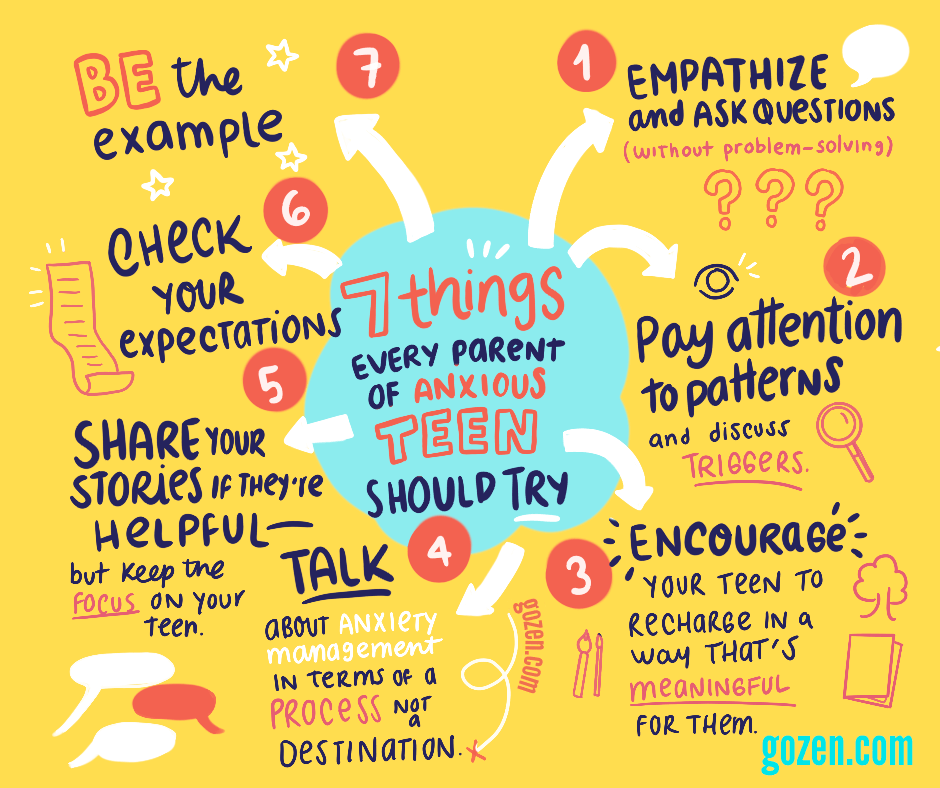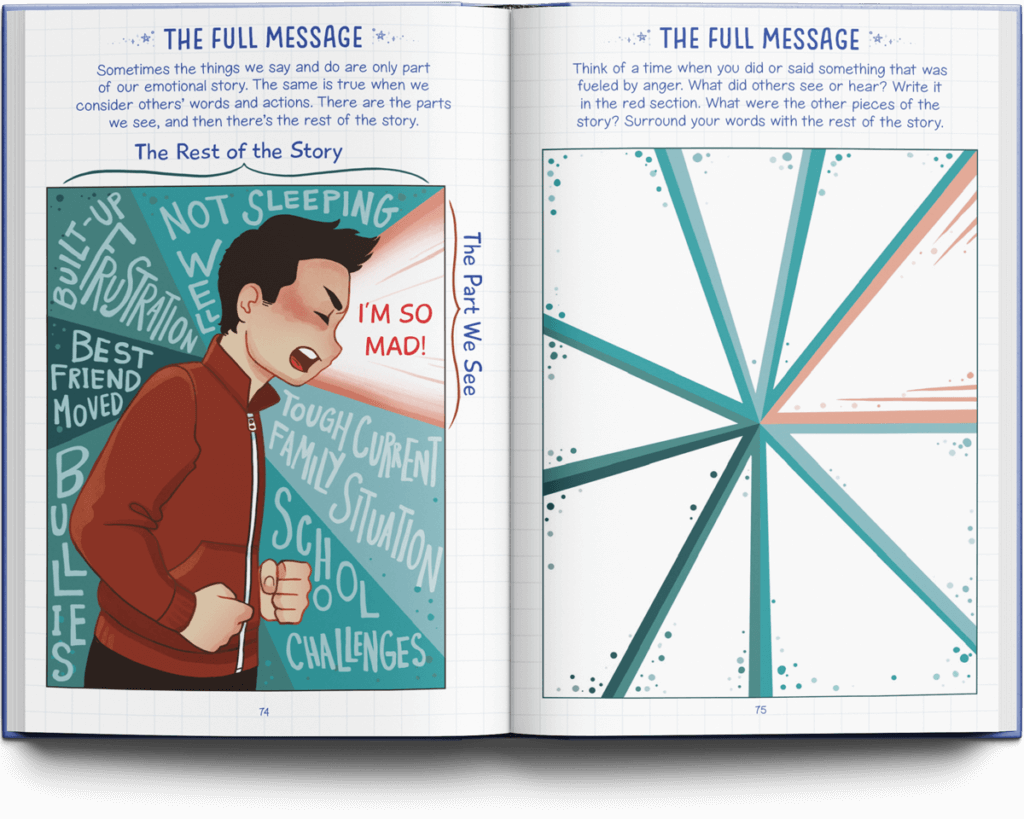Butterflies in the stomach before a first date, a quick heartbeat while walking into a job interview, and feeling a sense of nervousness before making a difficult apology are all unavoidable parts of growing up. For some teens, however, anxiety begins to interfere with day-to-day life.
As a parent, it can feel impossible to do the right thing when you’re watching your child struggle with anxiety. You don’t want to overstep and stop them from learning how to manage anxiety on their own, but you also don’t want to let them flounder without support.
Here, we’ll take a look at some concrete ideas you can try to help your anxious teen calm their nerves.

1. Empathize and ask questions (without problem-solving).
You hate to see your teen dealing with anxiety, and you’d do anything to help them feel better. When your teen’s anxiety strikes, it can be tough to sit back and watch them handle it on their own, but doing so can be a vital part of their growth and development. Rather than trying to solve issues that are causing anxiety for your teen, empathize with them.
Try empathizing with your anxious teen by using phrases like:
- “It seems like this test is really on your mind — Mrs. Kingston’s tests are usually pretty challenging, right?”
- “Did something happen between you and Jessica? It seemed like your mood changed after she left.”
- “It has to be so tough waiting to hear back from Northwestern — how are you holding up?”
When you use empathetic language with your teen, you’re showing them that you’re paying attention and that you’re curious to learn more — not that you know more about their situation than they do, or that you don’t trust them to solve their own problems.
2. Pay attention to patterns and discuss triggers.
As an outside observer, you have a different look at your teen’s life than they do, and you may notice anxiety triggers that they have yet to realize. When talking to your teen about their anxiety, ask if they can pick out patterns. It can help to work backward, starting with the time that they notice the anxiety and working back to the trigger point. Doing so may help your teen link their anxiety to an environmental or lifestyle cause (like staying up too late, becoming hyper-focused on social media, or enjoying a sweet snack before bed).
3. Encourage your teen to recharge in a way that’s meaningful for them.
It’s important that you don’t push your teen to take on the same anxiety management steps that work for you (unless they show interest). When talking with your teen about their anxiety, encourage different tools, such as meditation, exercise (depending on how your teen prefers to recharge, a solo daily jog may be a better fit than a team sport), eating well, spending time in nature, creating art, or other activities that you’ve noticed seem to set their mind at ease.
It may be helpful to remind your teen that anxiety management activities won’t erase anxiety, rather, they’ll give them a new focal point that can help them through anxious thoughts and feelings.
4. Talk about anxiety management in terms of a process, not a destination.
In today’s world of instant gratification, it may be difficult for your teen to accept that they may have to work at managing anxiety for weeks before they begin to notice a difference. Encouraging your teen to track their anxiety (in a notebook or a smartphone app) can provide a concrete, measurable way for them to see whether the coping strategies they’re using are working.
Anxious teens tend to see their pursuits as successes or failures, with no gray area. If your teen is working to overcome anxious thoughts, it may be helpful to remind them that anxious thoughts will never disappear completely. Instead of eliminating anxiety, the goal is to develop coping strategies that help them work through anxious thoughts with increased ease.
5. Share your stories if they’re helpful — but keep the focus on your teen.
When your teen opens up to you, your memory is likely to flood your brain with your own anxious middle school, high school, or college experiences. When you feel tempted to share your experiences with your teen, ask yourself, “Am I doing this to reminisce on my childhood, or do I think this story holds value for my teen?”
Sharing stories about your youth can be a great way to bond with your teen, but when they’re opening up to you about their own issues and anxiety, it may be a better idea to simply listen, empathize, and ask questions.
6. Check your expectations.
We never want to think that we’re doing anything to contribute to our child’s anxiety, but sadly, many anxious thoughts begin at home. Your child may be hesitant to share this with you.
Asking your child if you’re contributing to their anxiety can be a valuable step in their coping process — be sure you’re ready to hear the answer. If your child tells you that your expectations, reactions, or even how you manage your own anxiety are partially at fault for their struggles, keep an open heart and mind, and operate from a place of love. It’s natural to feel defensive, but responding in a combative or argumentative way can stop your teen from wanting to open up to you again.
7. Be the example.
Your child looks to you as the example of how they should manage their life. When you’re anxious, think about how you’re coping as well and use some of the same things you do for your teen. Make sure your self-care game is on point so that you stay grounded and process your own anger in a healthy way. Turn inward for some self-reflection. If you need to make adjustments in how you handle anxiety and stress, be open and transparent, and invite your teen to join you in your new anxiety management techniques.
Looking for more resources for your teen that’s struggling with anxiety? Try our Mission Me journal!
